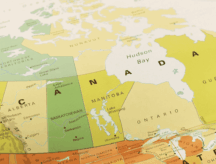Newfoundland and Labrador changes application intake for its provincial immigration pathways
Foreign nationals can no longer apply directly to Newfoundland and Labrador's permanent residency pathways, and some applications in progress will not be processed.
Newfoundland and Labrador is changing its intake process, both for provincial nominations (for its Provincial Nominee Program (PNP)) and for certificates of endorsement (for the Atlantic Immigration Program (AIP)).
Effective February 19, 2025, intake for the PNP and AIP has moved to an online Expression of Interest (EOI) system.
Under this new system, foreign nationals must create an Expression of Interest in order to be considered for these programs. The province will review EOIs and then send its preferred candidates invitations to apply for nomination or for endorsement. Foreign nationals will not be apply to apply to the province for nomination or for endorsement without first having received an invitation from the province.
For foreign nationals with applications in progress prior to the launch of the EOI system, the province will review all existing applications, and will advance some to the application stage, while returning others to the EOI pool. The province will make these decisions on a case-by-case basis using the same criteria for EOI evaluations, and will contact current applicants to update them on status.
This article will cover
- How the new EOI system works; and
- Recent changes to the NLPNP and provincial immigration.
Assess your eligibility for enhanced PNP programs
How the new EOI system works
The newly announced EOI model introduces a two-step process for immigration candidates.
In this new system, individuals must first submit a short form that outlines key details about their qualifications. This includes information about their
- Occupation;
- Education;
- Language skills; and
- Willingness to live in Newfoundland and Labrador.
Once the EOI is submitted, it will be reviewed by the province and select candidates will be invited to proceed with applying for nomination to the NLPNP or for their certificate of endorsement for the AIP*.
Processing times for new applications are also expected to rise due to this change. The NLPNP advised that assessment of some applications may take “three months or more in some cases”.
The NLPNP stated that this streamlined process will allow for a more targeted approach to immigration by helping to ensure that the right candidates are chosen to fill critical roles within the province, particularly in sectors experiencing labor shortages, such as health care and education.
*Note that applications for permanent residence (PR) through the AIP are processed directly by the federal government. This is in contrast to applications to the NLPNP, which (if successful) lead to a provincial nomination from Newfoundland and Labrador. Applicants must then either:
- Apply to the Canadian federal government with a complete application for PR; or
- If an application is submitted under an Express Entry-aligned stream, candidates must maintain a valid Express Entry profile and receive an Invitation to Apply (ITA) under the Express Entry system, allowing them to apply directly to the federal government for PR.
EOI systems in Canadian provincial immigration are usually used for streams that do not require candidates to have a job offer to be eligible. This is notable considering that four of the six immigration pathways to Newfoundland and Labrador require job offers (including the AIP).
However, Newfoundland and Labrador is not the only province to newly introduce an EOI system. In September of 2024 the Alberta Advantage Immigration Program (AAIP) announced that it would be employing a similar EOI intake for its worker streams—requiring candidates to submit a Worker EOI to be considered.
Recent changes to the NLPNP
The NLPNP has undergone significant changes in recent months, reflecting both the growing demand for immigration and the province's efforts to better manage its immigration process.
Historically, the provincial government processed immigration applications on a first-come, first-serve basis. However, in late 2024, a surge in demand combined with limited economic immigration spaces led to a shift towards priority processing. This change aimed to ensure that immigration spaces were allocated more strategically, focusing on applicants who align with the province’s labor market needs and economic priorities.
In January 2025, the NLPNP also announced a pause on the processing of Job Vacancy Assessments and AIP Designations for employers. This pause remains in effect, with further updates expected in the coming weeks as the province continues to evaluate its immigration strategy.
Despite these adjustments, the NLPNP reports that its capacity to welcome new immigrants remains limited.
Following a drastic reduction halving the number of provincial nomination allocations available to the NLPNP in 2025, Newfoundland and Labrador successfully negotiated with the federal government to secure secured an additional 1,000 economic immigration spaces. As part of this deal the province will also accept 290 new humanitarian immigrants over the next two years.
This increase brings the total province’s immigrant nomination allocation to 2,525 in 2025. However, the NLPNP reports that this figure still falls short of the demand for immigration, with the provincial government actively advocating for further increases in economic immigration spaces.
- Do you need Canadian immigration assistance? Contact the Contact Cohen Immigration Law firm by completing our form
- Send us your feedback or your non-legal assistance questions by emailing us at media@canadavisa.com






